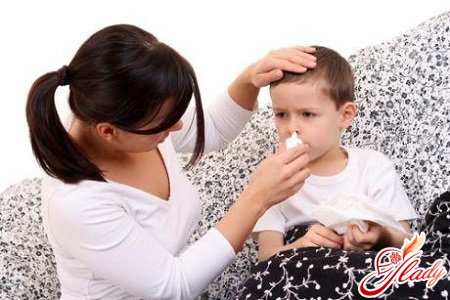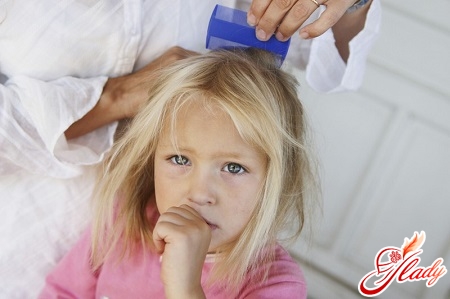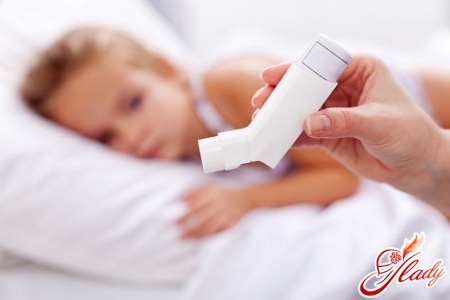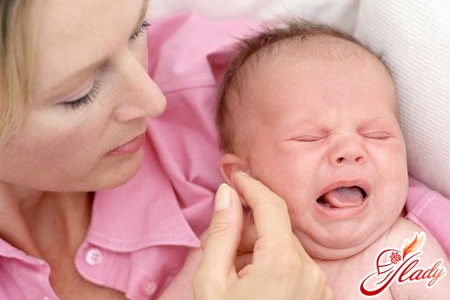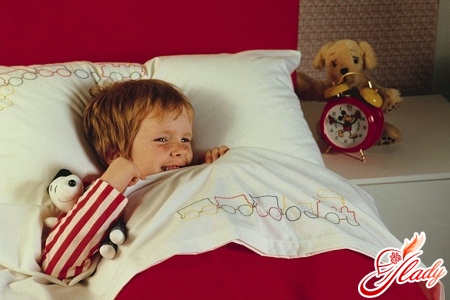 Did your little one wake up in wet pants again this morning?Don't rush to scold him, because he himself is not having a sweet time! As a rule, children in such situations experience extreme embarrassment and shame. Scolding them in this situation is the worst thing you can do. Most likely, you and your child are faced with enuresis. And enuresis is nothing more than a real disease. Therefore, the child should not be scolded, but treated! By the word enuresis, doctors mean the child's inability to hold urine. In children, doctors distinguish two main types of enuresis: daytime and nighttime. In no case should enuresis be confused with constant urinary incontinence, which is a completely different neurological disease. Nocturnal enuresis is called involuntary urination at night in those children who have already reached the age of five. At the age of one to three years, the formation of control over the process of urination begins. This formation normally ends at about four years. The normal number of urinations in a child fluctuates around 10, depending on the age and the amount of liquid the child has drunk. The majority of urinations normally occur during the daytime, when the child is awake. At night, urination stops. However, in about 20% of children aged five to twelve, this process is disrupted. As a result, the child wakes up in a wet bed almost every morning, as he suffers from nocturnal enuresis. The older the children become, the smaller the percentage of them suffer from nocturnal enuresis. However, about 2% of children do not part with this disease in adulthood. By the way, boys suffer from enuresis twice as often as girls. And nocturnal enuresis in male children persists throughout life much more often.
Did your little one wake up in wet pants again this morning?Don't rush to scold him, because he himself is not having a sweet time! As a rule, children in such situations experience extreme embarrassment and shame. Scolding them in this situation is the worst thing you can do. Most likely, you and your child are faced with enuresis. And enuresis is nothing more than a real disease. Therefore, the child should not be scolded, but treated! By the word enuresis, doctors mean the child's inability to hold urine. In children, doctors distinguish two main types of enuresis: daytime and nighttime. In no case should enuresis be confused with constant urinary incontinence, which is a completely different neurological disease. Nocturnal enuresis is called involuntary urination at night in those children who have already reached the age of five. At the age of one to three years, the formation of control over the process of urination begins. This formation normally ends at about four years. The normal number of urinations in a child fluctuates around 10, depending on the age and the amount of liquid the child has drunk. The majority of urinations normally occur during the daytime, when the child is awake. At night, urination stops. However, in about 20% of children aged five to twelve, this process is disrupted. As a result, the child wakes up in a wet bed almost every morning, as he suffers from nocturnal enuresis. The older the children become, the smaller the percentage of them suffer from nocturnal enuresis. However, about 2% of children do not part with this disease in adulthood. By the way, boys suffer from enuresis twice as often as girls. And nocturnal enuresis in male children persists throughout life much more often.
Causes of development of enuresis in a child
There are quite a large number of the mostvarious reasons leading to the development of enuresis in a child. But neurologists are the main provoking factor is various damage to the child's brain, which occurred either during a pathological pregnancy or as a result of birth injuries. As a rule, all these injuries occur due to fetal hypoxia. As a result of these disorders, the normal rate of maturation of the central nervous system slows down significantly, and the child's hormonal background does not correspond to the age norm. The combination of all the above factors leads to the development of enuresis in a child. In addition, the following factors are additional prerequisites for the development of nocturnal enuresis:
- The presence of the child various acute and chronic infections of the urinary tract.
- Violation of normal nervous regulation of the bladder.
- Various anomalies in the development of the organs of the urinary system.
In addition, exacerbation of existing enuresismay cause hypothermia, colds or acute respiratory disease. It is very important to consult a doctor - a pediatrician as soon as possible. The most common mistake parents make is not to show the child to the doctor, believing that the problem will disappear on its own over time. And they continue to put diapers on the child, first at two years old, then at three, at four, at five years old ... However, very often, when examining children suffering from enuresis, doctors detect various pathologies not only of the urinary tract, but also of the kidneys. And these pathologies are not always harmless. Very often, their timely diagnosis allows you to maintain the child's health and ensure a full life in the future. To diagnose possible diseases, doctors prescribe a number of examinations, which include:
- A general blood test that will determine the child's health and the presence of inflammatory processes in his body.
- Ultrasound examination of the entire urinary system, including kidneys.
- Electroencephalography.
In some cases, the doctor may consider it necessaryconduct a number of additional studies, which include: intravenous urography, cystoscopy, uroflowmetry. If the urologist detects pathologies or diseases of the kidneys and urinary system in the child, the child will be prescribed the necessary course of treatment. All further treatment and observation of the child will take place with the urologist. In the same case, if the doctor was unable to identify any violations on the part of the genitourinary system, the child will be sent for additional examination, either to a neurologist or a psychologist. And if the cause is some neurological or psychological disorder, the doctor will prescribe the necessary treatment for the child. A lot also depends on the parents in the process of treating enuresis. It is the parents who must teach the child to use the potty, and also carefully monitor the child's regular urination at first. It is very important to monitor the child's drinking regimen, not letting this issue slide. The child should drink most of the liquid in the first half of the day, and it is completely unacceptable to drink a large amount of liquid before bedtime. Also, do not wake up the child to go to the toilet at night - this can cause even more disorder of the central nervous system and, as a result, a significant deterioration of the situation. Nocturnal enuresis in children will not go away from this - treatment is required. As the treatment progresses, the child will wet the bed at night less and less often. Of course, the course of drug treatment is important. In the event that the doctor has prescribed pharmacological treatment for the child, parents must adhere to it very strictly. However, in the treatment of enuresis, the approach to the problem from a psychological point of view is also very important. Parents must be extremely tactful, attentive and correct in relation to their child suffering from enuresis.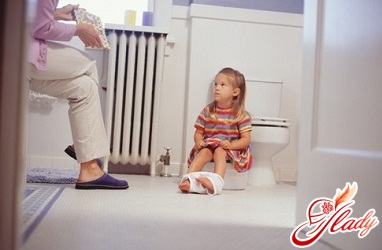
The effect of the disease on the development of the character of the child
It goes without saying that enuresis is not a diseasemay pass without a trace for the child's psyche. Even if the child does not show it, he is very worried about his illness, he begins to develop an inferiority complex. Moreover, this phenomenon is observed not only in adult children, but even in three-year-olds. Children begin to feel embarrassed by their healthy peers, as a result of which they begin to avoid communicating with them, withdrawing into themselves. This problem especially often makes itself known when the child begins to go to kindergarten, where he sees healthy children. The inferiority complex makes itself known especially strongly if children begin to laugh at the child, or the teacher or nanny begins to shame him. All this has a very negative effect on the formation of the child's character as a whole. Some children can become very aggressive, while others, on the contrary, are indecisive, timid, withdrawn. And even if parents do not notice any changes in the character of their child, there is no guarantee that these same changes will not make themselves known when the child enters the so-called "dangerous" transitional age. And parents will not even realize that all these problems with the child's character come from childhood, as a result of the fact that the baby suffered from enuresis. That is why parents should be extremely friendly to their child. In no case should you shame him, and even more so scold him - this will only make the situation worse. The following course of events is very common: the child shows the first signs of enuresis, which are not particularly intense. Parents begin to show their dissatisfaction to the child, the child begins to worry. And, as a result, the development of various neurotic conditions is very high. Enuresis begins to make itself felt even more. Parents get nervous, the child too, the disease intensifies - a kind of vicious circle is obtained. In addition, quite often neurotic conditions that contribute to the development of enuresis can be provoked by various additional external factors, such as:
- Birth in the family of the second child.
- Severe illness or death of close relatives.
- Unfavorable emotional situation in the family.
- Moving the family to a new place of residence, changing kindergarten and school.
- Divorce of parents.
- Death of a pet.
Neurotic conditions in a child requiretreatment by a neurologist and psychologist. In addition, parents should remember that neurotic conditions have one interesting feature. They can almost completely disappear and then fully return, depending on the child's psycho-emotional state. And this means that enuresis can manifest itself in exactly the same way - sometimes fading away, then reappearing when, it would seem, the disease has completely retreated. In no case should you despair and give up, since a break in the treatment of enuresis negates all your previous efforts.
How can you help your child?
Once again it is necessary to remind - parentsplay a huge role in the treatment of enuresis in a child. If enuresis in a child developed very suddenly, without any prerequisites, parents need to analyze the situation and try to understand what could have caused the development of the disease. Perhaps some radical changes have occurred in the child's life? Try to help the child adapt to new conditions. Do not forget about the microclimate in the family - calm, friendly atmosphere, no conflicts - all these are important conditions for your child's recovery. Do not forget that almost all children have a hard time with the absence or even just a lack of parental attention. Try to pay as much attention to the child as possible - read to him, play various games, walk with him. All these measures will not only help to cope with the disease, but will also help to strengthen your relationship. Parents should also pay attention to how their child spends his free time. You should not allow the child to spend a long time watching TV, and even more so to play computer games for a long time - this has an extremely negative effect on the state of the child's nervous system, overstimulating it. Replace computer games with a walk, and watching TV with reading a book. It is worth talking separately about such an issue as a child's daytime sleep. In no case should you force a child to go to bed with a scandal if he does not want to. The child does not need unnecessary stress. You can simply draw the curtains and read a book to the baby. Most likely, the child will fall asleep on his own. And even if he does not fall asleep, such rest is much more useful than sleep preceded by the child's crying. It is also worth mentioning the preparation for night sleep. Firstly, a strict regime is very important - the child must go to bed at the same time. Secondly, child psychologists recommend developing a kind of ritual - for example, putting toys away in their places, hygiene procedures, reading a book and sleep itself. Those parents whose children are faced with such a problem should remember that enuresis in children requires a fairly long treatment. Therefore, patience and endurance should remain faithful allies in the fight against the disease. We recommend reading:




